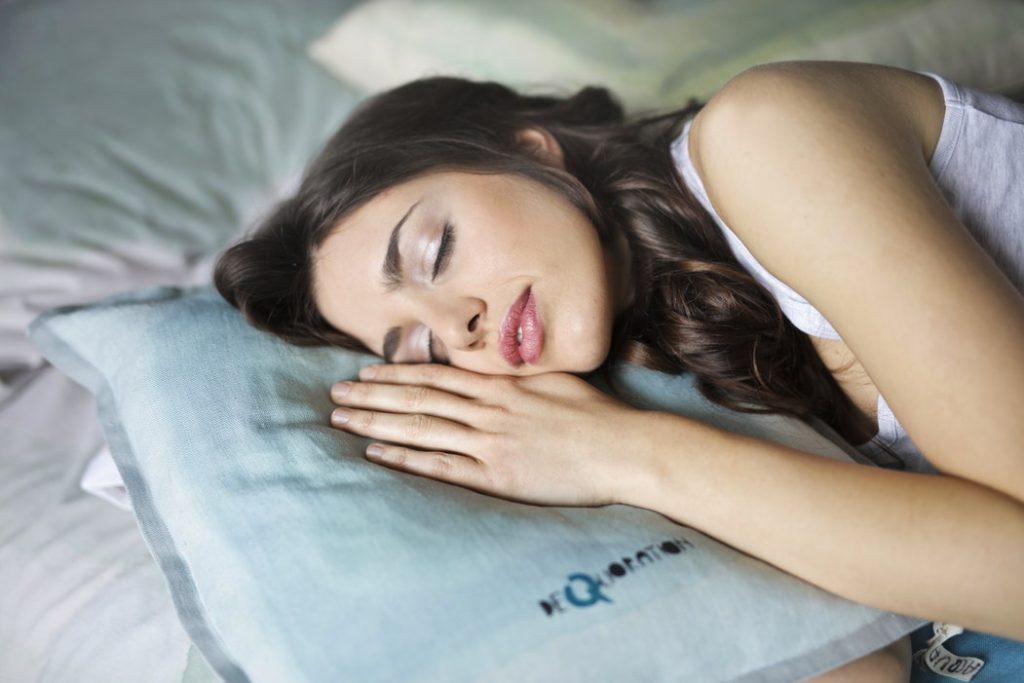According to research, sleep improves our intellectual performance, helps our body fight off infections, and does all sorts of good to our mind and body. However, not all of us can fall asleep that easy because of stress, anxiety, and all other sorts of factors, many of which we just can’t do anything about. Where we make our bed is one of the factors that can influence the quality of our sleep, luckily, there’s so much we can do in order to create a perfect sleeping environment.
Get some plants
Oxygen is vital for our body, and plants are natural oxygen factories. Gardenia, Lavender, Jasmine and many others consume Carbon dioxide and produce oxygen but also emit a pleasant smell that creates a soothing atmosphere which relaxes our muscles and brain, thus providing an effective sleep.
Set the right temperature
When we sleep our body reduces its temperature and slows down all body functions. Therefore, it’s important to set up the right room temperature so we don’t expose ourselves to stress. Research suggests that the optimal room temperature for a peaceful sleep sits between 16-18 degrees Celsius. The kids and the elderly people should turn the thermometer to a bit higher temperature, though.
The night is dark for a reason
During the night our pineal gland releases melatonin, which is a hormone that helps us relax and travel to the land of dreams. Make sure your room is dark enough when you go to sleep, also, prevent the early morning light from entering your room before it’s your time to wake up. You can cover your windows with some drapes or window blinders.
The importance of a comfortable bed
The size of our bed, the quality of the mattress and pillows influence our ability to relax when we try to get some shuteye. If the bed is not comfortable enough it makes our muscles work and they get tense which is not at all helping our chances to fall asleep. Furthermore, waking up after a night on an uncomfortable mattress is never a pleasant experience.
Sound
We are very different in so many ways. Some of us can sleep in a crowded room full of people while others can’t fall asleep until the room is soundless. Earplugs are a good way to set yourself apart from any unwanted noise. Moreover, some research suggests that “white noise” can soothe people and help them fall asleep. Wayne Rooney, a famous athlete, once said that the sound of a vacuum cleaner or hair dryer provides the perfect sleeping environment.
crowded room full of people while others can’t fall asleep until the room is soundless. Earplugs are a good way to set yourself apart from any unwanted noise. Moreover, some research suggests that “white noise” can soothe people and help them fall asleep. Wayne Rooney, a famous athlete, once said that the sound of a vacuum cleaner or hair dryer provides the perfect sleeping environment.
Keep your bedroom clean
According to the National Sleep Foundation survey, 62 percent of people claim they sleep much better in a room that’s clean and well-arranged. If you have a hard time falling to sleep in your own room, try and organize your room, place everything in its order, and never keep a trash bin inside your bedroom.
Don’t smoke in your bedroom
Nicotine addiction is a nasty thing. This substance causes a long list of health issues, including sleep disorders it’s strange how it’s still legal to smoke tobacco. Nevertheless, without judgment, cigarette smoke introduces carbon monoxide, as well as a number of other molecules that prevent the optimal flow of oxygen in our blood. Remember that nicotine is a stimulant, so if you are a smoker, choose not to smoke at least 30 minutes before you go to bed.
The bedroom is not an office
No matter how much work you have, avoiding sleep is not going to get the job done, well not in a way you want it anyways. Instead of working late, consider having a good long sleep and continue with your work tomorrow, rested and more productive. Students often pull all-nighters when they have to finish their assignments, which can have a negative effect on their sleeping habits in a long run. It’s better to hire online services like Scholar Advisor, College-Paper, Essay Writing Land, or some other to help you with your work than turning your bedroom into your workroom and lose your sleep.
Moreover, notification sounds and led lights from your laptop, cell phone, or tablet can distract you or even wake you up in the middle of the night.
Paint your bedroom properly
Psychologists claim that colors play an important role when it comes to the quality of our sleep. Scientists recommend avoiding primary colors, as well as glossy finishing because these types of color arrangement suppress your ability to sleep. The list of colors that experts don’t recommend in your bedroom include:
- Red
- Purple
- Gold
- Gray
Proper bedding
As much as it’s important to have a good mattress, our sheets and covers, as well as pillows have a say in how good our sleeping conditions are. According to experts, silky sheets are the best choice for your sweet dreams, also you can opt for hypoallergenic down comforters, or cashmere throws.
Conclusion
Sleep influences our ability to focus on our work, helps our body recover from injuries, regulates our blood sugar level, and reduces stress. It’s easy to see that sleep provides a better quality of life, so do your best to enjoy your nights and sleep tight.

Author Bio:
Scott Matthews is a content writer regularly engaged with Best Essays and Essay Writing Lab, where he provides writing help to people who need compelling, quality content. When he’s not writing, Scott enjoys playing video games with his son and family picnics.












